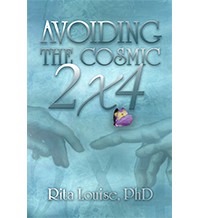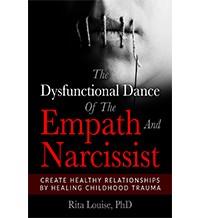How To Start Journaling: Tips And Ideas For Beginners
As children, many of us had a diary with which we shared our deepest thoughts and secret hopes and desires. After scribbling on its lined pages, we would secure it away by means of its small lock and key. For added security, we probably took the extra precaution of hiding it under our mattress or in the deep recesses of our desk or closet. Our diary was a place where we could write about the events of our day, the crush we had on the boy who sat next to us in biology class, or the fight we had with our parents because they wouldn’t let us go to a party.
Often left behind as a fond memory of our youth, the concept of keeping a diary has evolved from the musings of our teen years into a full fledged self help tool. The rite of keeping a diary has come of age and with it, the advent of journaling.
What Is Journaling?
Journaling is a way in which we can record what is going on in our lives. Journals can be used for most anything. They can be filled with our ideas, facts, figures, photos, sketches, poetry and quotes – basically anything you can get down onto a piece of paper. For example, in a more traditional sense of the word, people often use journals to keep business records. Some people journal about their travel exploits, while others have journals that are filled with theoretical concepts, such as for the generation of free energy. Even Sean Connery carried a journal as he quested for the Holy Grail in “Indiana Jones and the Last Crusade”.
Today, when one speaks of journaling, it often implies the act of writing down our thoughts, ideas, feelings and emotions as a tool for personal growth, increased awareness, and improved mental and emotional health. When used in this way, journaling gives us the opportunity to explore below the surface of the conscious mind, where we can access information from deep within ourselves.
What Can Journaling Be Used For?
In this context, journaling can be used for a number of reasons. Most commonly, people journal for mental health reasons. Journaling can help clarify feelings, gain insights into choices they need to make, or to hash out problems they are experiencing. They can be used as a means to solve a problem in which the answer is eluding us, or to help us identify our goals, wants, needs and desires. Some people use this mental health diary as a tool to release the emotional pain and trauma they may have had or are currently experiencing in their lives, while others may use it to explore the blessings they receive daily.
This type of journaling supports our thought processes. When we are feeling stuck, confused, stressed out or conflicted, our thoughts – instead of being clear and concise – end up whirling around in our heads. Our minds tend to jump around from one idea to the next, and then back to the first one again. Through the act of writing, we are forced to arrange our thoughts into a clear, somewhat linear pattern through which we can express ourselves.
Journaling for mental health is a form of mindful meditation. As we being to write and allow the flow of our thoughts to move through our body and out onto paper, we inadvertently end up quieting our minds. Our bodies will quickly follow, thus providing us with a sense of peace and relaxation. Many health professionals recommend journaling for stress reduction, to help relieve anxiety, or to work through the complex set of feelings one may be experiencing. Regardless of what we decide to journal about, it is always amazing what kinds of insights and epiphanies we may experience.
Are you ready to start Journaling? Continue on to learn how to begin the healing process for yourself.
Never Journaled Before?
Here Are Some Simple Tips To Get You Started

While there are whole books that discuss the in’s and out’s of journaling, it is extremely simple to do and even master. But let’s start at the beginning. Some people refer to this type of journaling as their stress journal, their depression and anxiety journal, their mindfulness or gratitude journal and even their thought journal.
When I journal, I prefer writing with pen and paper. Some people favor journaling on their computer. While typing (especially if you can type quickly) does afford an increased speed in getting your thoughts down, I feel as if I lose something in that process. For me, can reach a deeper, more intense depth to myself as my hand moves across a piece of paper.
What You Will Need To Start A Journal
With this said, to journal, all you really need is a pen and a piece of paper. Since you may want to look back at your writings later on down the road, it is recommended that you use something that will keep your papers collected together. My husband, for example, uses spiral bound notebooks. I prefer to use 8 ½ x 11 artist sketch pads. The heavy, blank paper gives me the opportunity to include sketches that may come to mind. The unlined paper also allows my handwriting to be as expressive as my words, and the plain black cover affords me the pleasure of decorating it with cute stickers or other decorations I may find.
Many stores now-a-days carry a variety of journals you can choose from. Find one that feels right to you. They come in all shapes and sizes, lined and unlined, decorated and plain, and at a price that can meet anyone’s budget. Some people prefer writing with a certain kind of pen. If you prefer writing with a pencil, or on your computer that is okay too. The most important thing to remember is that this journal is yours and yours alone, so pick what appeals to you.
How To Begin Your Journal
With your journal in hand, think of something to write about. Therapeutic journaling can be as simple as writing about your day or what’s going on in your family or at work. As you begin to write, don’t just put down the facts. Include what you thought and how you felt about the event, including your emotions – be they happy, sad, negative or positive. This is all part of the stress reduction process and can help reduce any anxiety you may be challenged with.
As you begin writing, the stream of words coming to you may start out slow, but as the mind and body begins to relax and you begin accessing the information that is stored inside of you, your words will naturally start to flow. Allow one thought to lead you to another, and then another.
Sometimes this information will want to come out in one, fell swoop, with your words coming right to the point. At other times, they may twist and turn from one idea to the next. You might find that as your thoughts are processed, you will reach what feels like branches or choices that your thought process can follow. This is especially true when trying to work out a complex problem. Each branch represents some aspect of the issue that needs to be addressed, or parts of your psyche that are looking for a voice.
Working With The Flow Of Consciousness
While you write, in your don’t worry about spelling or grammar. Instead, let your hand move quickly and freely across the page. If you think you’ve made a mistake or change your mind, leave it. Don’t waste your time erasing or crossing out words – this can interrupt the flow of consciousness you find yourself in. Sometimes as you are working, questions, issues or other thought tracks will come to the surface. This is okay – actually normal. Jot a quick note to yourself on the top or side of your journal page and keep going. You can always come back to these topics at a later time.
After a while, whether it is one paragraph or ten pages, you may notice that the stream of your thoughts that may have been racing earlier has begun to slow down. This is usually an indication that you have reached the conclusion of this segment of your inner journey. Take this time to stop writing, or move on to another branch or thought that may have presented itself. If at all possible, do not stop writing mid-stream. As we process through our thoughts, there is always a beginning, middle and end. If time is against you, ask your unconscious mind to abbreviate what it wants to tell you. Ask it to provide you with a breaking point. Also request that you be able to access this flow of consciousness again at a later date.
Journaling & Record Keeping
Also, before you close your book, make sure that you date your entry. Some people like to record the time, location and their mental / emotional state when the entry was made as well. This can be helpful when reading back an entry – especially if a long period of time has passed. What you do and how you do it, again, is totally up to you.
Journaling Prompts And Ideas
Very quickly, you will find yourself becoming accustomed to the technique of journaling for your mental health. At this time, you can move on to more complex topics. Try asking yourself questions you have been searching for answers to. “Should I look for a new job?” “What is keeping me from losing weight?” “I just had a fight with my husband – what was my role in the blow-up?” “I’m experiencing pain in my physical body – what is it trying to tell me?” The list of questions you can explore are endless. Each question we ask, other associated and related questions or avenues of inquiry will make themselves known to you.
Journaling for stress and anxiety reduction requires little from you. But it can provide you with so much, you might find yourself wanting to journal in all kinds of unusual places.
There have been times when I felt an urgent need to explore, clear and release an emotionally charged topic – “like right now!” In one instance, I was in my car and there wasn’t a piece of paper, notebook, or tablet to be found. Out of desperation, I dug around in my purse and pulled out an old envelope. When that was full, I reached into the glove compartment and continued my ramblings on a fast food napkin. In that moment, all I needed was something I could write on. With pen in hand, I raced to capture my thoughts and feelings as they flew out of me.
What you use and how you do it is really of no importance. If spirit is moving you, as it was moving me that day, take a moment and do it.
What To Do After A Journaling Session
After a journaling session, many people like to go back and read what they have written. Some wait a few days and then do a review. To me, it is always a treat to read what I have written in an old journal, especially one that is a few years old. It is a blessing to be able to go back and acknowledge where I have been and how much I’ve grown in the passage of time.
If you have never journaled before, give it a try. No experience or training is required. You can’t hurt yourself or others as you process through your inner thoughts, and – best of all – spelling is optional. Be open to the healing aspects it can provide. Use it to help you access the innate wisdom you already possess. I’m sure you will be amazed how much clearer everything can become once you’ve explored it in writing.
© Copyright Rita Louise, Inc. – soulhealer.com. All rights reserved.
Taking action is the key to making positive changes in your life. This includes your health. So don’t wait! Take your next step right now and contact Dr. Rita to schedule a private consultation.
Medical Intuitive Reading – Intuitive Counseling – Energy Healing



